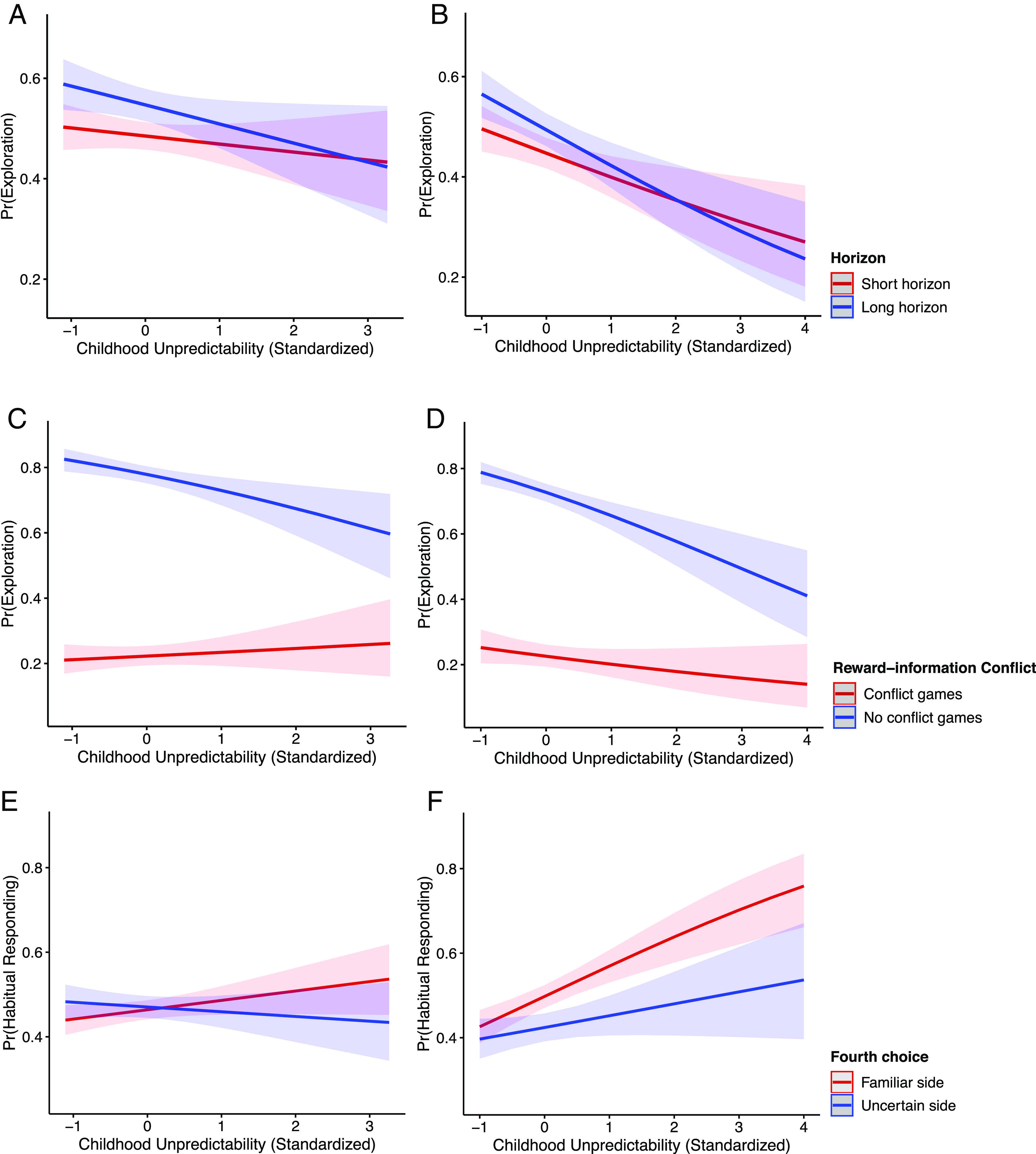Fig. 3.

Relationships between childhood unpredictability and explore-exploit choices differ by task conditions in the Horizon task. (A and B) Strategic exploration. Children who reported more childhood unpredictability used less strategic exploration in both the Primary (A) and Replication (B) studies (P = 0.03; P = 0.05). They were less likely to choose the informative option, especially in long-horizon games where that information could be used to guide future choices. (C and D) Temporal discounting. Children who reported more childhood unpredictability did not demonstrate increased temporal discounting, as they were less likely to adjust their information seeking across conflict and no-conflict games in both the Primary (C) and Replication (D) studies (P = 0.002; P = 0.04). There was no evidence from either study that those who reported high unpredictability explored less in reward-information conflict games or that they explored more in no-conflict games where the high informative option yields more rewards. (E and F) Habitual responding. Children who reported more childhood unpredictability showed an increased preference for familiar options over exploring uncertain options in both the Primary (E) and Replication (F) studies (P = 0.07; P = 0.02). 95% CIs are plotted.
